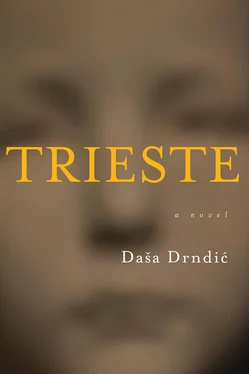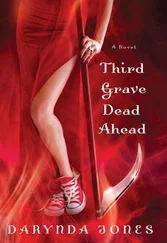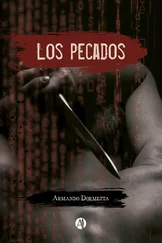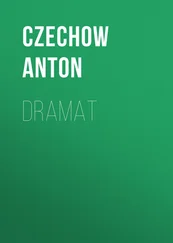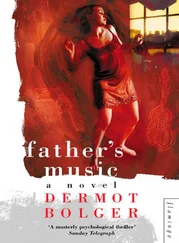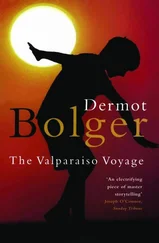So they commit Ada to the psychiatric ward of Gorizia hospital, where she decants absinthe, grappa, vodka or any alcoholic beverage she can lay her hands on, into perfume flasks, which, with great effort and cunning, she tucks into toilet cisterns, pillow cases, other people’s bags, through which she rummages frantically at night, barefoot and urine-soaked.
At this point, in 1953, Haya begins to study mathematics in Trieste.
Ada gets to know Umberto Saba at the hospital and they have long conversations, all sorts of conversations, while both of them stand, elbows on the sill, at a tall window with iron bars and sniff the fresh Gorizia air. Later, in 1961, when prominent psychiatrist Franco Basaglia comes to Gorizia, the iron bars are removed, the front door is left unlocked, the patients stroll around the gardens, some slowly as if dreaming, some spry, on their way home. Ada wears two sprigs of white oleander behind her ear and sings, then, when Basaglia comes to the hospital, as he indulges her little alcoholic binges. But by the time Basaglia gets there, Saba is gone. Saba dies in 1957, Ada dies five years later.
It’s nice here, Ada tells Haya when she comes to visit. Sad people live here. Jews, too. Umberto speaks of Trieste, where there is also plenty of sorrow, and
next to the hill there’s a graveyard
in ruins, which funerals pass
and where no-one’s been buried for as long
as I can remember
says Umberto,
my ancestors lie here,
he says, and he is a Jew, too, Ada tells her.
Umberto says, Trieste is a pungent and melancholy city, the strangest city, Umberto says, a city of boyish adolescence and rude charm, so he says, says Ada, then he takes me for a stroll, and we amble around Trieste, this isn’t the Trieste we lived in when Florian was serving coffee at the Piazza Unità, this Trieste is serenely innocent, so Umberto says , says Ada, it is a lovely world, Umberto says, and he paints that world for me, he paints me suppressed longing and aching love, so he says, I’ll paint you unspoken longing and aching love and exhausted words fiore-amore in that murky madness, Umberto says, in that madness in which vainly discordant voices reverberate, he says, this is a lovely Trieste, not the Trieste we fled, Ada says.
Where I dreamed of patent-leather shoes, and never got them, Haya jumps in, but Ada doesn’t hear, Ada is ambling around Trieste with Umberto, and Haya is skipping after her.
There, Ada says, we go off to the Ponterosso, Umberto and I, and we look at the birds, because Umberto likes birds, Ada says, and now I like birds too, though the stuffed birds Grandfather Angelo had were frightening, their dead glassy eyes, Ada says, and he takes me, Umberto, to Via Riborgo or Via Pondares, I forget, to the house where he was born, in what was the Jewish ghetto then, but those houses are gone now, the house I was born in is gone, Ada says, today that’s an altogether different house — houses are disappearing, Haya, people, too, now I see — and we make the rounds of the trattorias Umberto remembers, and we have a grappa at the Alla Bella Isoletta, I am a little island, too, Haya, a barren little island, left behind, but it wasn’t always like that, no. Then we go to where Carolina was born, she was Umberto’s wife, and Umberto talks about her a lot, and he talks a lot about Lina — Linuccia — he uses pet names for her, I never used pet names for you, Haya. We were always in a hurry. We had no time for tenderness. I don’t know how that happened, that we were left without time. What would I have called you? Haya, Hayuccia, Hayichen? asks Ada and starts to sob, then through the tears, she says, You could have brought me another couple of bottles. These bottles are so small. They are very little, these bottles you bring me. And Umberto ran away, you know, just like we did, he ran away from fascism, so he tells me,
We ran into fascism, Haya interrupts, but Ada doesn’t hear.
and he hid in attics. I hid everywhere, Umberto says, in attics in Paris, in Florence, in Rome, says Umberto, says Ada, and she also says, The next time you come, bring some ampoules of morphine for Umberto and little bottles of rum for me, and when I die, bury me at Valdirosa, over there, in Slovenian soil. And he, Umberto, talks to me, you know , says Ada, he tells me about train stations we didn’t know about, and he asks me ,
Stations, do you remember? At night, full
of final farewells, unchecked weeping,
crammed with people the transport takes .
The order “move” given by the
sob of a trumpet;
and ice, ice around your heart .
but I don’t remember, Haya, I don’t, says Ada, maybe it’s the drink. And, you know, says Ada, Umberto’s last name isn’t Saba anyway, though that is exactly what he is called, Umberto Saba, because his name is actually Umberto Poli. Did you know that? Though he might have been Umberto Coen. He could have, says Ada. He could have been Coen, because his mother was Jewish and her last name was Coen, not his father’s, his father’s was Poli , says Ada, and he left them, Umberto and his Mama Rahela, a nice name, Rahela , says Ada, Jewish , she says, and then Umberto declared, I will take the name Saba, because none of this matters anyway, you know, what your last name is, he said, though I’m not so sure it doesn’t matter, I am not so sure, and that is how Umberto takes the last name Saba, because he had a nanny whose name was Pepa and he loved her a lot and she was Slovenian, like my Mama Marisa, my Mama Marisa from Gorizia, your grandmother, Haya, who also disappeared. Oh Haya, how people vanish. It’s so painful, and Umberto says there are no unborn or dead, there is only the living life for eternity; pain that passes, happiness that stays, Umberto says, whose last name is Saba, though really his last names are Poli and Coen. There is pain that passes, Umberto says, and so it is that your pain will pass, Haya, and so it is that Rahela sent Pepa packing, and Pepa’s last name was Sabaz, and then Umberto declared, That will be my last name, after my Pepa from Gorizia, because it doesn’t matter anyway what your name is, says Umberto, says Ada. Sometimes he doesn’t feel like talking, Umberto, Ada says, so he, Umberto, recites poems about birds for me, and we look at the trees and I listen to his poems about birds, and he recites for me his poems about birds, and I long to be a bird, and Umberto says,
the leaving, this year, of the swallows
because of a thought my heart will squeeze,
and he says,
my loneliness will be bereft of swallows,
and love at my advanced age will freeze,
says Umberto, and then we go on looking into the garden, which is shadowy, and we observe those trees, and then I say to Umberto, Look at how shadowy this garden is. We could hide out there, if they allowed us to walk around it sometimes, around the shadowy garden, and he says, There is no shadow where my tiredness could find shelter. But I am tired, too, Ada says, and she says, Haya, don’t forget to bring me rum. They think they’ll cure me. They will not cure me. I don’t want to be cured, because I’m not ill, but Umberto says, If you feel like drinking, drink, they won’t cure you here. Though it isn’t bad here, though I would like to go for a walk, maybe even sing. For the time being I sing softly, more to myself, then I ask Umberto, Am I crazy? because sometimes it seems to me that all this, this life, my life, your life, that all this is a serious madness, but Umberto says, says Ada, Umberto says that Dr Weiss says (and I trust Dr Weiss, Umberto says), Dr Weiss says, Craziness is a dream from which a person doesn’t awake. That is what Dr Weiss says, Umberto says. Haya, bring some rum for sure. If there’s no rum, buy gin, in a little bottle, a mini-bottle, in several little bottles, and bring Umberto morphine. He sometimes sits and whispers a poem that isn’t his. He whispers a poem that is called “Solitudine ”; then I see that everything is different from what it seems, because he sits and whispers:
Читать дальше
